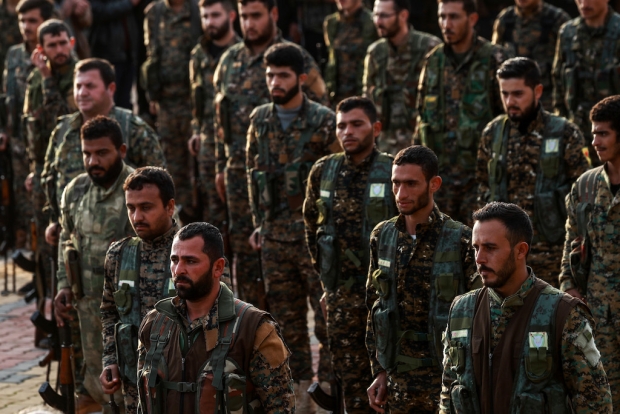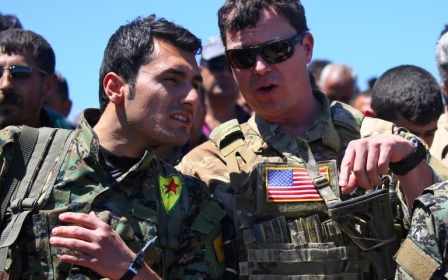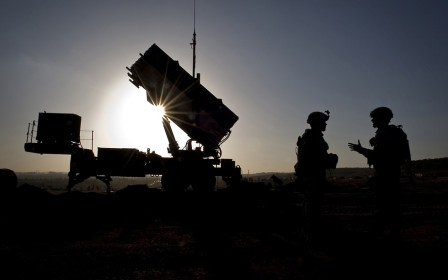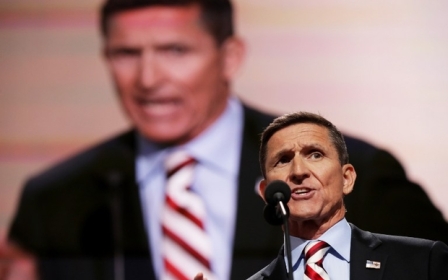A surprised Turkey could see an opportunity in US withdrawal from Syria
ISTANBUL, Turkey - When the US announced on Wednesday that it was set to start withdrawing its forces from northeastern Syria, its ally Turkey appeared to be as surprised as the rest of the world.
Ankara is now mulling over a number of unknowns, including the time frame of the pull out, the fate of US support for the pro-Kurdish People's Protection Units (YPG) and whether or not the US will take back, as promised, heavy weapons delivered to the YPG.
The United States has long claimed that the YPG - which operate as part of the multi-ethnic Syrian Democratic Forces (SDF) - are an essential ally in the fight against the Islamic State (IS) group in Syria, but Turkey considers it an extension of the outlawed Kurdistan Workers' Party (PKK), which it designates a terrorist group, along with the US and the European Union.
Since mid-September, Turkey has warned about the “threat coming from the east of the Euphrates”.
In 2012, the YPG took control of large areas east of the river as Syrian government forces pulled out to fight rebels in the west. The US, meanwhile, has around 2,000 military officers and advisers in the YPG-held northeast and has delivered arms and ammunition to the group.
We have to wait and see if the meaning of Syria for the US is the same. If the meaning is still the same, who will be the partner to reach its aims - still the YPG or another force?
- Nihat Ali Ozcan, former Turkish army officer
Turkey has repeatedly declared the area west of the Euphrates a red line the YPG would not be allowed to cross, while also stressing it would not target the American presence there.
“The most important question that needs to be answered here is, what will be the meaning of the east of Euphrates for the US and who will be the ally of the US for fulfilling its aims over there?” Nihat Ali Ozcan, a former major in the Turkish army and now an analyst at the Ankara-based TEPAV think tank, told Middle East Eye.
He pointed out that the Trump administration had said US troops were in Syria for two reasons: to fight against IS and to limit the power of Iran in the region.
“We have to wait and see if the meaning of Syria for the US is the same. If the meaning is still the same, who will be the partner to reach its aims - still the YPG or another force? Will the US say that 'I am withdrawing but my ally on the ground will remain to fulfil my aims, and if anyone tries to prevent it, I will be against it?'” he said.
In a speech on 27 November, Turkey's president Recep Tayyip Erdogan said that there were no more IS fighters left in Syria, except several small gangs kept alive to continue destabilising the country and the region. He also added that the only genuine fight against IS was carried out by Turkey.
In the same speech, Erdogan also criticised US military support to the YPG under the pretext of fighting IS, saying that he would acknowledge "those claiming to be allies" were on Turkey's side "when they no longer stand as shields in front of terrorist groups".
According to Ozcan, the US decision to withdraw may be related to Turkey's repeated promises to launch an operation against the YPG, despite Ankara's apparent surprise at the news.
An opportunity
Oytun Orhan, Syrian section coordinator of the Ankara-based Middle Eastern Studies Centre, said the US decision might be an opportunity to improve ties between Washington and Ankara.
“Turkey’s pressure for the east of Euphrates creates a security risk for the American soldiers, and there is no reason to take this risk, especially in an atmosphere in which the political solution to the Syrian issue is gaining momentum,” he told MEE.
Orhan added that their military withdrawal did not mean that the US is also withdrawing politically, but that it would create a vacuum in the region.
“Such a vacuum will encourage the actors who are targeting the presence of the YPG in the region. But yet, I think Turkey will wait until the US troops are pulled off for a military operation against it,” he said.
In addition, there has been much confusion about the real intent of the US, as different departments of government have expressed different attitudes toward the pullout.
In November, before a meeting between Erdogan and Trump, a Turkish presidential source told MEE that there was a misconnect with the US administration.
“The leaders of both countries had a mutual understanding. They were both committed to improving ties", the source said. "However, whenever the leaders took a decision, the process on the American side petered out. Different voices were heard from the Pentagon, from the State Department and various other establishments there."
Middle East Eye propose une couverture et une analyse indépendantes et incomparables du Moyen-Orient, de l’Afrique du Nord et d’autres régions du monde. Pour en savoir plus sur la reprise de ce contenu et les frais qui s’appliquent, veuillez remplir ce formulaire [en anglais]. Pour en savoir plus sur MEE, cliquez ici [en anglais].





